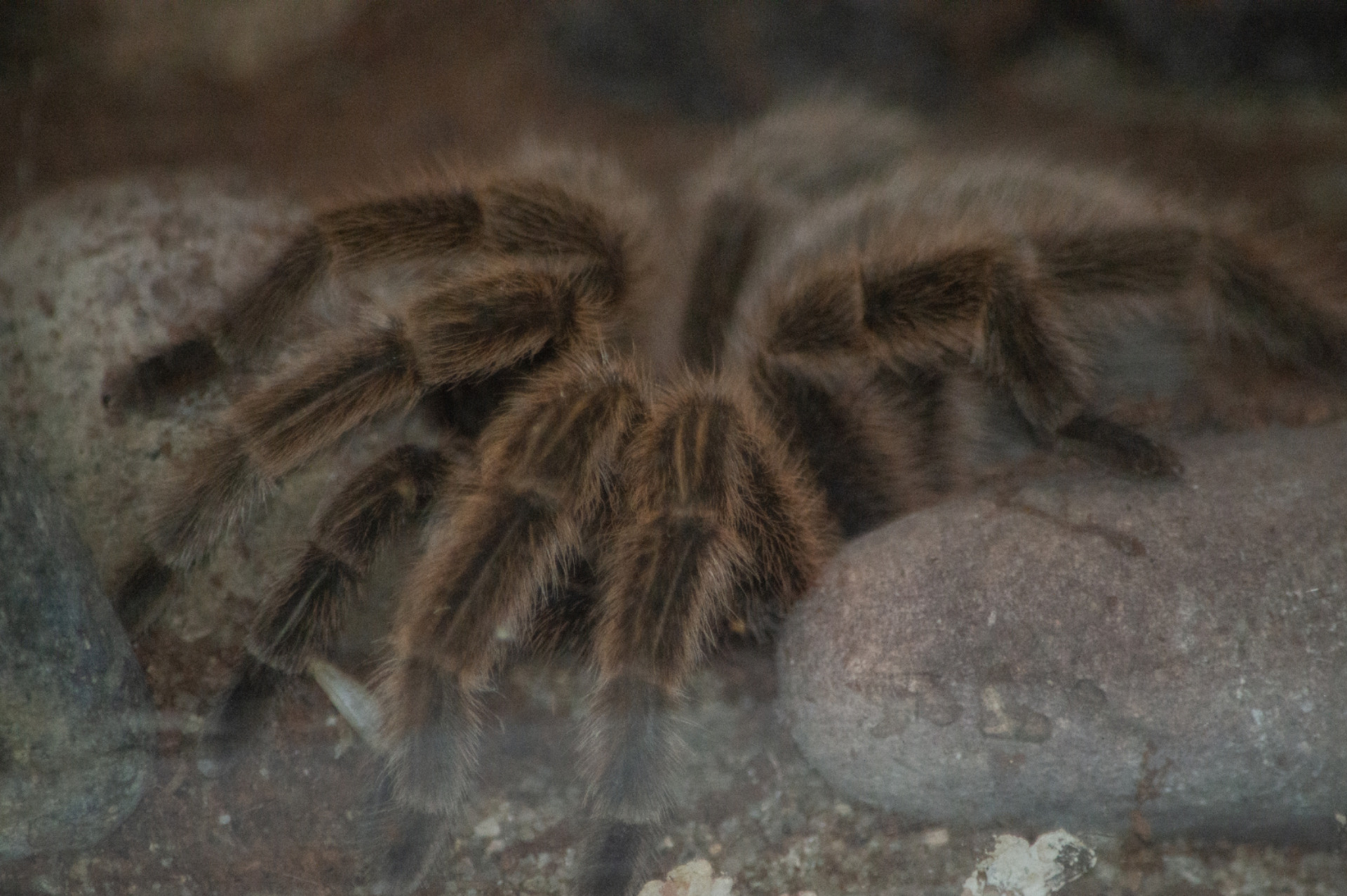Chilean Rose Haired Tarantula

Basic Information:
Scientific Name: Grammostola rosea
Habitat: Chilean rose haired tarantulas are native to the scrubland and deserts of northern Chile, Bolivia, and Argentina.
Diet: Chilean rose haired tarantulas eat a variety of critters including grasshoppers, beetles, mealworms, small lizards, and small mammals.
Size: 0.3 to 0.4 foot leg span
Weight: 0.1 to 0.2 pound
Lifespan: 5 to 10 years for males. 20 to 25 years for females.
Distribution Map:
I.U.C.N. Conservation Status:

What does this mean?
Not Evaluated – a category used to include any of the nearly 1.9 million species described by science but not yet assessed by the International Union for Conservation of Nature (I.U.C.N.).
Our "On-Exhibit" Chilean Rose Haired Tarantula:
Rosie (Female) – Estimated Date of Birth Between 2012 & 2014
Our "Ambassador" Chilean Rose Haired Tarantula:
Rosie (Female) – Estimated Date of Birth Between 2006 & 2010
About Chilean Rose Haired Tarantulas:
Due to their docile nature, Chilean rose haired tarantulas are one of the most common species of tarantula to have as a pet. In nature, they can be found in northern Chile, Bolivia, and Argentina where they make burrows in desert and scrublands. Chilean rose haired tarantulas tend to be skittish by nature and will run away rather than fight when they sense danger. However, if they are aiming to fight, Chilean rose haired tarantulas will raise their front legs and present their fangs before attacking. They are also known to flick or “shoot” hairs off of their abdomens as a means of defense.
Did You Know?!
- Chilean rose haired tarantulas are venomous! They chase their prey to inject it with venom and enzymes to break it down into ingestible fluids. The venom is not incredibly harmful to humans and would be similar to a bee sting (unless the person was allergic).
- Chilean rose haired tarantulas can flick or “shoot” hairs off their abdomens which can cause an irritating reaction for the victim.
- A tarantula’s fangs fold under their body.
- Chilean rose haired tarantulas have four other appendages near their mouth. They either contain fangs and venom or are used as feelers and claws. They are called chelicerae and pedipalps.
